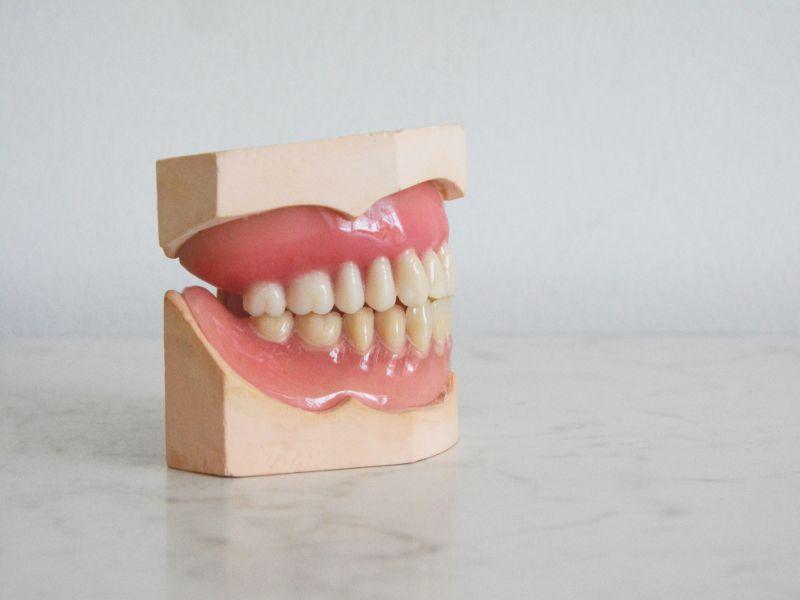When we think of teeth, we often associate them with chewing, smiling, and overall oral health. But can your teeth influence your speech and even your musical abilities? The surprising answer is yes. Prepare to discover the intriguing relationship between teeth alignment and how they can impact your speech patterns and musical talents!
The Lingual Landscape: How Teeth Affect Speech
Our teeth play a crucial role in the production of speech sounds. To understand this connection, let’s take a closer look at how speech sounds are made:
Articulators: Speech sounds are produced when different parts of our vocal tract interact. The primary articulators are the lips, tongue, and teeth.
Consonants: Consonant sounds are those in which airflow is obstructed or restricted at some point in the vocal tract. Many consonant sounds involve the tongue making contact with various parts of the mouth, including the teeth.
The Dental Trio: Sibilant Sounds
One of the most noticeable ways in which teeth affect speech is through sibilant sounds, also known as “hissing” or “hushing” sounds. These include the “s,” “sh,” “z,” and “zh” sounds. To produce sibilant sounds, the tongue comes into contact with the upper front teeth or the alveolar ridge, the bony ridge just behind the upper front teeth.
Now, imagine having misaligned teeth or a significant overbite. This misalignment can alter the way the tongue interacts with the teeth or ridge, potentially leading to difficulties in producing these sounds accurately. This is one reason why orthodontic treatment, such as braces or clear aligners, is sometimes recommended for individuals with speech impediments related to teeth alignment.
The Speech Therapy Connection
For those with speech impediments stemming from teeth misalignment, speech therapy can be immensely beneficial. Speech therapists work with individuals to improve their pronunciation and articulation, often incorporating exercises to address specific speech sound issues caused by dental irregularities.
Speech therapy may involve tongue exercises, jaw exercises, and strategies to help individuals adapt their tongue placement to produce speech sounds correctly. In many cases, orthodontic treatment goes hand-in-hand with speech therapy to achieve optimal results.
Musical Harmony: Teeth And Your Vocal Abilities
Now, let’s shift our focus from speech to music. Can the alignment of your teeth impact your musical talents? It turns out that there’s a connection worth exploring.
Singing And Teeth Alignment
Singers, in particular, are attuned to the importance of oral anatomy, including teeth alignment, in producing accurate and beautiful tones. Here’s how teeth can come into play:
Resonance: The shape of your oral cavity, influenced by your teeth alignment, affects the resonance of your voice. A well-aligned set of teeth can contribute to a fuller and more resonant vocal tone.
Pronunciation: Clear pronunciation and articulation are crucial for singing. Teeth alignment can impact how you shape your mouth to create specific vowel and consonant sounds in song lyrics.
Breath Control: Proper teeth alignment can influence your ability to control your breath effectively, which is essential for maintaining steady, controlled singing.
Braces And Singers
Many professional singers have undergone orthodontic treatment at some point in their careers. For some, braces were a means to achieve a visually appealing smile, but they also ended up benefiting their vocal abilities.
For example, the improved alignment of teeth can help singers achieve better breath control, clearer articulation, and enhanced resonance, ultimately contributing to a more powerful and melodious voice.
Of course, these days there are more orthodontic treatments to choose from than traditional braces, such as the discreet but effective clear aligners you will find provided by the likes of ALIGNERCO. These orthodontic solutions serve both aesthetic and functional purposes for aspiring and professional vocalists alike, allowing them to reach their full potential.
Musicians And Their Unique Dental Challenges
While singers may be most affected by teeth alignment, other musicians can also encounter dental challenges related to their craft:
String Instrument Players: Even string instrument players, such as violinists and cellists, may experience discomfort or difficulty if their teeth alignment affects their jaw’s resting position or their ability to hold their instrument comfortably.
Brass Instrument Players: Brass musicians, including trumpeters and trombonists, depend on precise control of their oral muscles. Teeth alignment can influence how they create a seal around the mouthpiece, affecting their tone and range.
Wind Instrument Players: Musicians who play wind instruments like the flute or clarinet rely heavily on their oral anatomy. Dental issues, such as overbites or underbites, can impact their ability to create the correct embouchure (mouth position) for playing these instruments effectively.
In some cases, musicians may need to consult with orthodontists or oral health professionals to address specific dental challenges that interfere with their ability to play their instruments effectively.
Coda: The Sweet Sound Of Possibilities
The next time you listen to a beautiful piece of music or hear someone speak with perfect articulation, you might find yourself thinking about the role of teeth in these delightful sounds.
Teeth alignment, as it turns out, plays a significant role in both speech and musical abilities, and the innovative field of orthodontics offers opportunities to enhance these skills further.
Whether you’re an aspiring musician, a dedicated singer, or simply someone who values clear communication, the sound of straight teeth can be music to your ears. It’s a reminder that the harmony of your oral health extends beyond your smile and can have a profound impact on the way you express yourself through speech and song.

